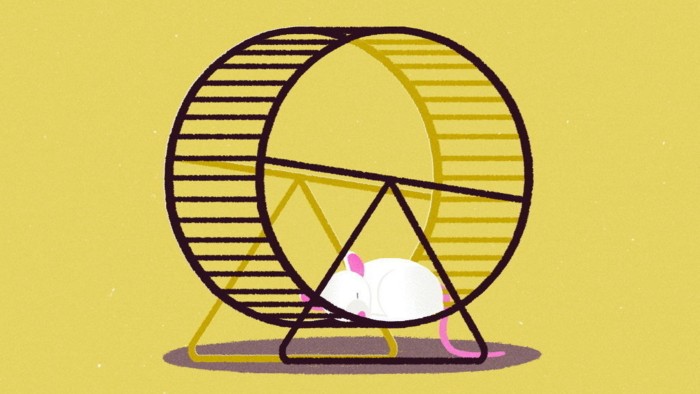‘Degrowth’ — Marxism is back for the modern age


Roula Khalaf, Editor of the FT, selects her favourite stories in this weekly newsletter.
Judged solely by the bestseller stands of the biggest bookshop in Tokyo’s financial district, the streets of late 2022 Japan should now be licked by revolutionary flames.
On one set of shelves are the titles that worship business, deify its pantheon of global leaders and promise readers supremacy with seven keys to success. Where these volumes identify crises — underfunded pensions, demographic collapse, climate implosion — they do so with the fearless faith that capitalism will present a solution.
But from across the aisle comes the newly remastered snarl of Karl Marx — insistent from beyond the grave that the brakes must be slammed on the world’s economic propulsion units, this update is attractively packaged for the mass consumption of despondent modern Japan and presented as the original visionary of the philosophy of “degrowth”.
The new wave of Japanese books eyeing global malaise through a Marxist prism includes a manga (comic) explainer of Das Kapital which depicts worker exploitation in a charming mountain campsite and is aimed at broadening the potential salaryman audience of degrowth converts.
Foremost in Japan’s recent mainstreaming of Marx has been Kohei Saito, a thoroughly engaging philosopher who, from a book-lined study at the University of Tokyo, argues that degrowth is the only way to save society from a crisis of inequality and impending environmental doom. Growth did not make us happy. Frustration is rife. Reusable coffee flasks will not save us, he contends, sipping from one.
Whether the Japanese public actually agrees with the thesis or not — and there is no reason to equate vast readership with widespread conviction — a great many are certainly curious about Saito’s framing of the issue. And that itself is intriguing in light of one of Japan’s less discussed generational divisions: the split between anyone older than about 50 and those under 35 — the latter being, arguably, the rich world’s first degrowthed cohort.
Saito’s Capital in the Anthropocene, published in late 2020 and overlaying Marx’s writings on the natural world with a call to arms on sustainability and climate change, was not an especially likely hit. But the pandemic, says Saito, created a natural sympathy for the idea of degrowth, and shook Japan out of the conviction that huge, overnight alterations to ordinary life were out of the question. To even its author’s surprise, the book and its prescription for systemic upheaval has sold more than half a million copies, and is due to be published in English and other languages next year. His follow-up, Before the Great Flood: Marx and planetary metabolism, was published last month and, according to sales staff at Maruzen, is doing a roaring trade.
Though Saito couches his argument in academic tones, elements of his degrowth philosophy overlap with those of the noisiest climate activists outside Japan. A big part of Saito’s mission is simply to provoke a Japanese conversation on the climate emergency where, at the moment, he sees next to none.
He is brutal on Japan’s historical tendency to pack the economy with “bullshit jobs” that consume the country’s increasingly precious labour force to no useful end. Meat, SUVs and sports cars should be far more heavily taxed to offset the damage they do, he says. He also believes that, because it works so well at promoting endless unnecessary consumption, advertising should be heavily restricted — in particular the kind of giant LCD screens that loom over Tokyo, draining power Japan can ill-afford to waste. “We could eliminate advertising from society and nobody would suffer at all except the advertising industry,” he says.
But the most commercially significant aspect of Saito’s new strain of Marxism, he admits, may well be that it is being articulated by a 35-year-old. Saito was born in the late 1980s, during the inflation of one of history’s biggest financial bubbles, and he entered primary school just as Japan was beginning its three decades of economic stagnation.
Japan has been in deflation for most of his adult life, wages across the country have not risen and interest rates have been zero. He may see Japan still as a sprawling consumption-scape of destructive, growth-obsessed capitalism, but his is one of two generations who have reached adulthood without experiencing growth as their predecessors knew it.
These are the Japanese, he suspects, who are reading his books and perhaps wondering whether the kind of full-blooded systemic shift he sets out might not actually be so far out of the question. The streets of Japan are not, of course, aflame. But some may have already quietly embraced the degrowth philosophy.
Letters in response to this article:
The ash heap of history awaits acolytes of growth / From Guy Wroble, Denver, CO, US
The ghost of Marx still stalks Japanese politics / From Takeo Tamashiro, Tokyo, Japan
Comments